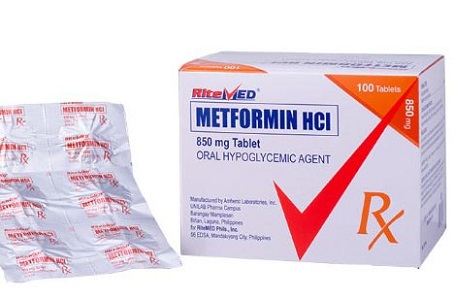Nikhil Prasad Fact checked by:Thailand Medical News Team Jul 25, 2024 9 months, 2 days, 21 hours, 10 minutes ago
Medical News: A recent study conducted by researchers at Western Norway University of Applied Sciences and the University of Bergen-Norway has found that the widely-used diabetes drug metformin could offer significant benefits in treating fatty liver disease. This
Medical News report delves into the study's findings.
 Understanding Fatty Liver Disease
Understanding Fatty Liver Disease
Fatty liver disease, known scientifically as non-alcoholic fatty liver disease (NAFLD), is a condition where fat builds up in the liver. It is closely linked to obesity, diabetes, and metabolic syndrome, all of which can lead to severe health complications. Metformin, commonly prescribed for type 2 diabetes, has been known for its effects on glucose metabolism. However, its potential impact on fatty liver disease has only recently come into focus.
The Study: Metformin's Impact on Fatty Liver
The study aimed to investigate whether metformin could counteract the effects of meldonium, a drug that induces fatty liver. Four groups of male mice were fed different diets: a low-fat control diet, a low-fat diet with metformin, a low-fat diet with meldonium, and a combination of metformin and meldonium. Over three weeks, researchers observed the effects on weight, visceral fat, liver fat, and plasma fat levels.
Key Findings
Weight and Fat Reduction
Mice fed with both metformin and meldonium showed significantly lower weight gain and visceral fat compared to those fed with meldonium alone. Despite identical food intake across all groups, the combination group had a notably lower growth rate, suggesting that metformin helps reduce fat accumulation.
Liver Fat and Plasma TAG Levels
Meldonium alone significantly increased liver fat and plasma triacylglycerol (TAG) levels, indicative of fatty liver disease. However, mice treated with both metformin and meldonium had significantly lower liver fat and plasma TAG levels. Metformin appeared to mitigate the lipid accumulation caused by meldonium, suggesting its protective effects against fatty liver.
Gene Expression and Fatty Acid Oxidation
One of the remarkable findings was the increase in the expression of genes involved in fatty acid oxidation and lipid transport in the liver of mice treated with both drugs. Metformin enhanced the activity of key enzymes and genes like carnitine palmitoyl transferase 1 (Cpt1a) and mitochondrial uncoupling protein UCP2, which play crucial roles in fat metabolism. This enhancement was more pronounced in the combination group, indicating that metformin supports better liver function by boosting fat oxidation processes.
How Metformin Works
Metformin's role in lowering plasma TAG levels can be attributed to its ability to enhance fatty acid oxidation in the liver. By increasing the expression of genes responsible for this process, metformin helps the liver break down fats more efficiently. This not only reduces fat buildup in the liver but also lowers the levels of fats circulating in the blood, which is beneficial for overall
metabolic health.
Implications for Human Health
While this study was conducted on mice, the findings offer hope for new treatment approaches for humans suffering from NAFLD. Metformin's ability to lower liver fat and blood fat levels suggests that it could be an effective therapy for preventing and treating fatty liver disease in people, especially those with diabetes and obesity.
Future Research Directions
The study opens up several avenues for future research. Long-term studies are needed to understand the sustained effects of metformin on fatty liver disease. Additionally, clinical trials in humans will be crucial to confirm these findings and determine the optimal dosage and treatment regimens for different patient populations.
Conclusion
This groundbreaking study highlights metformin's potential beyond its traditional use in diabetes management. By reducing liver fat and improving fat metabolism, metformin could become a valuable tool in the fight against fatty liver disease.
The study findings were published in the peer-reviewed journal SynBio.
https://www.mdpi.com/2674-0583/2/3/14
For the latest on Fatty Liver Disease, keep on logging to Thailand
Medical News.
Read Also:
https://www.thailandmedical.news/news/traditional-chinese-medicine-yinchen-wuling-powder-shows-promise-in-treating-non-alcoholic-steatohepatitis
https://www.thailandmedical.news/news/cilostazol-a-new-hope-for-fatty-liver-disease
